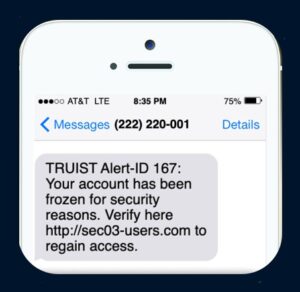What You Need to Know About Smartphone Security
October 18, 2024

Today, smartphones have become an extension of ourselves. From communication and entertainment to banking and personal management, our phones hold vast amounts of sensitive information. While these devices offer immense convenience, they also present significant cybersecurity risks. Understanding these risks and knowing how to protect yourself is crucial. Below are some key areas to focus on when it comes to smartphone security.
Understanding the Risks
Smartphones are essentially mini-computers, capable of storing personal data, passwords, banking information, and much more. Unfortunately, this makes them a prime target for cybercriminals. The risks include:
- Malware and Viruses: Just like computers, smartphones can be infected with malicious software, which can steal your data, track your activities, or lock your device.
- Phishing Attacks: Cybercriminals often use phishing attacks to trick you into revealing personal information. These attacks can come via email, text, or even fake apps.
- Unsecured Networks: Public Wi-Fi networks are notoriously insecure. Hackers can easily intercept data transmitted over these networks, gaining access to your sensitive information.
Securing Your Device
The first step in protecting your smartphone is ensuring that the device itself is secure. Here’s how:
- Use Strong Passwords: Always use a strong, unique password or a biometric lock (like fingerprint or facial recognition) to secure your phone. Avoid using easily guessable information like birthdays or simple number sequences.
- Enable Two-Factor Authentication (2FA): Wherever possible, enable 2FA on your accounts. This adds an extra layer of security by requiring a second form of verification, usually a code sent to your phone, in addition to your password.
- Keep Your Software Updated: Regularly update your smartphone’s operating system and apps. Updates often include patches for security vulnerabilities that could be exploited by hackers.
- Install a Reliable Security App: Consider using a reputable mobile security app that offers features like malware scanning, anti-phishing, and lost device tracking.

App Safety
Apps are a significant source of both functionality and potential risk. Here’s how to manage them safely:
- Download Apps from Trusted Sources: Only download apps from official stores like Google Play or the Apple App Store. Third-party app stores may offer apps that haven’t been vetted and could contain malware.
- Review App Permissions: Be cautious about the permissions apps request. An app that requires access to your contacts, location, or camera should have a valid reason for needing that access. If something seems unnecessary, it might be a red flag.
- Delete Unused Apps: Regularly review the apps on your phone and delete any that you no longer use. Old, unmaintained apps can become security risks if they’re not regularly updated.
Be Wary of Public Wi-Fi
Using public Wi-Fi networks can be convenient, but it also exposes you to various risks. Here’s how to stay safe:
- Avoid Sensitive Transactions on Public Networks: If you must use public Wi-Fi, avoid accessing sensitive information such as online banking or shopping sites.
- Use a VPN: A Virtual Private Network (VPN) encrypts your internet traffic, making it much harder for hackers to intercept your data. Consider using a VPN whenever you connect to public Wi-Fi.
- Disable Auto-Connect: Many smartphones have a feature that automatically connects to available Wi-Fi networks. Disable this feature to prevent your phone from connecting to potentially insecure networks without your knowledge.

Be Cautious with SMS and Messaging Apps
Text messages and messaging apps can also be a vector for attacks:
- Don’t Click on Unknown Links: Be cautious about clicking on links in text messages, even if they appear to be from a known contact. Phishing links can look very convincing.
- Verify Suspicious Messages: If you receive a message that seems suspicious, verify its authenticity with the sender before taking any action.
Regular Backups
Backing up your smartphone’s data regularly is essential for minimizing the impact of a potential security breach. If your phone is compromised, having a recent backup can save your data and make the recovery process easier.
- Use Cloud Backup Services: Many smartphones offer built-in cloud backup options. Ensure this feature is enabled and that your data is being backed up regularly.
- Keep Multiple Backups: In addition to cloud backups, consider keeping a physical backup on an external hard drive or computer.
Smartphones are powerful tools that we rely on daily, but they also present significant cybersecurity risks. By understanding these risks and taking proactive steps to secure your device, you can protect your personal information and enjoy the convenience of mobile technology with greater peace of mind. Stay informed, stay updated, and stay secure.

Have Any Question?
Call or email Cocha. We can help with your cybersecurity needs!
- (281) 607-0616
- info@cochatechnology.com




